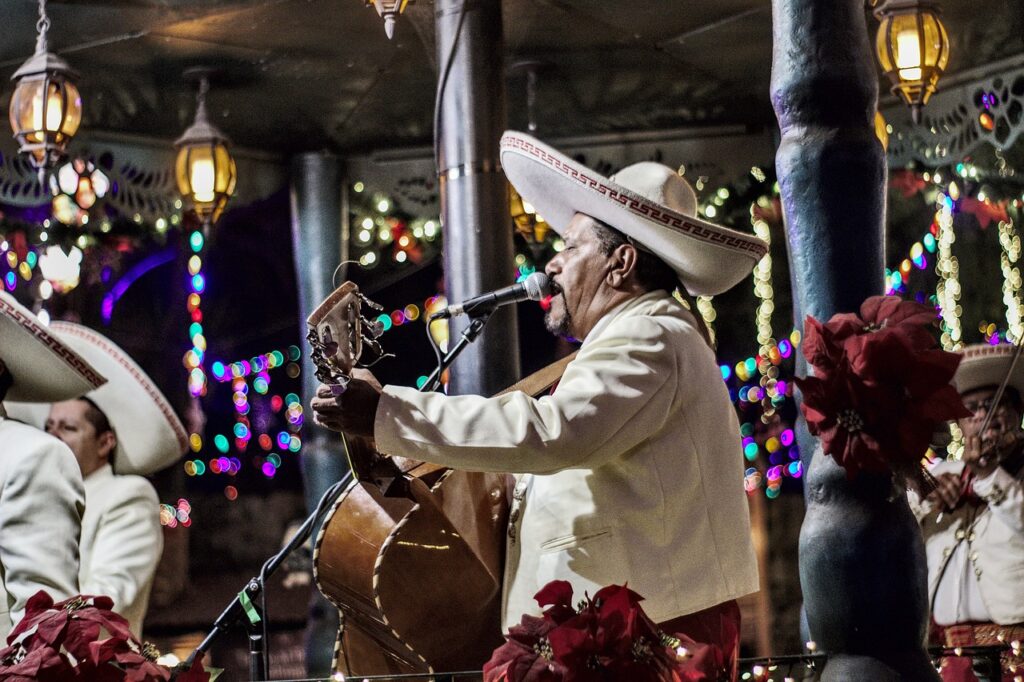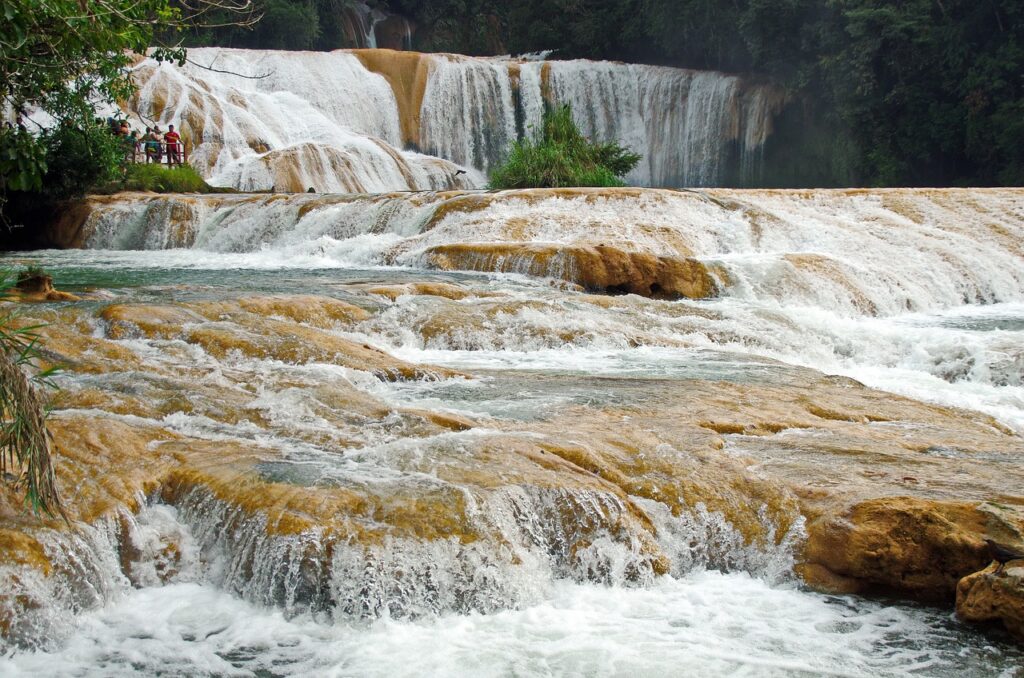
Interesting Facts About Mexican Culture (Read The Best 88)
The Influence of Mexican Film and Television
- A Global Cinematic Force: Mexican film and television have made significant strides on the global stage, with directors like Guillermo del Toro and Alfonso Cuarón achieving international acclaim. This industry reflects the creativity and storytelling prowess of Mexican culture.
The Role of Technology and Innovation in Modern Mexico
- Advancements Beyond Borders: Innovators like Guillermo Gonzalez Camarena, who significantly contributed to the development of color television, exemplify Mexico’s contributions to global technology and innovation.
The Diversity of Mexican Music: From Folk to Pop
- A Melody of Cultural Expressions: Mexican music is a diverse blend of styles, from traditional Mariachi and Norteño to contemporary pop and rock. Each genre reflects different aspects of Mexican culture and history.

The Significance of Mexican Environmental Conservation
- Preserving Natural Heritage: Mexico’s efforts in environmental conservation, such as protecting its unique ecosystems and endangered species, demonstrate a deep respect for nature that is rooted in Mexican culture.
The Evolving Mexican Education System
- From Ancient Teachings to Modern Learning: The Mexican education system, tracing its roots back to the indigenous and colonial eras, continues to evolve, adapting to modern needs while preserving its rich educational heritage.
The Cultural Impact of Mexican Migration
- A Story of Movement and Influence: The migration of Mexican people, particularly to the United States, has had a significant cultural impact, shaping perceptions and creating a dynamic cross-border cultural exchange.
Mexican Cuisine: A Reflection of Regional Diversity
- Distinct Flavors from Different Regions: Mexican cuisine varies greatly across the country, with each region offering its own unique dishes. From the seafood of Baja California to the mole of Oaxaca, these regional cuisines reflect the diversity of Mexican culture.
The Preservation of Mexican Traditions and Folklore
- Keeping Cultural Roots Alive: The preservation of traditions, folklore, and indigenous practices is a key aspect of Mexican culture. Celebrations, oral histories, and artisanal crafts keep these rich traditions alive for future generations.
The Role of Religion in Shaping Mexican Identity
- A Syncretic Blend of Beliefs: The influence of Catholicism, blended with indigenous beliefs, has profoundly shaped Mexican culture, evident in its festivals, art, and social customs.
The Influence of Mexican Literature and Poetry
- Voices from the Past to the Present: Mexican literature, from pre-Columbian mythology to contemporary novels and poetry, offers insight into the nation’s soul, reflecting its struggles, dreams, and rich cultural narrative.
The Global Influence of Mexican Art and Artists
- A Canvas of Cultural Richness: Mexican art, championed by figures like Frida Kahlo and Diego Rivera, has left an indelible mark on the global art scene, showcasing Mexico’s unique perspective and cultural richness.
FAQs About Interesting Facts About Mexican Culture
How has Mexican film and television influenced global cinema?
Mexican film and television have made a significant impact on global cinema, both historically and in contemporary times. The Golden Age of Mexican Cinema in the mid-20th century introduced the world to Mexican talent, storytelling, and unique cinematic aesthetics. In recent years, Mexican directors like Guillermo del Toro, Alfonso Cuarón, and Alejandro González Iñárritu have gained international acclaim, winning major global awards and bringing a distinct Mexican perspective to a wider audience.
Their works often blend universal themes with aspects of Mexican culture, history, and social issues, influencing filmmaking styles and narratives globally. Mexican television, particularly telenovelas, has also found international audiences, contributing to the global image of Mexican culture and society.
What role does music play in the cultural landscape of Mexico?
Music is a fundamental aspect of the cultural landscape of Mexico, serving as a reflection of the country’s diverse history and traditions. Mexican music encompasses a wide range of styles, from traditional genres like Mariachi, Norteño, and Ranchera to contemporary pop, rock, and electronic music.
Music is integral to Mexican celebrations, rituals, and daily life, often expressing the joys, struggles, and spirit of the Mexican people. It’s a medium through which stories are told and traditions are preserved, playing a crucial role in maintaining regional identities and fostering a sense of national pride.
How do environmental conservation efforts reflect Mexican values and culture?
Environmental conservation efforts in Mexico reflect the country’s deep respect for nature and understanding of its importance to cultural identity and survival. Traditional Mexican values, influenced by indigenous beliefs, often emphasize the interconnectedness of life and the need to live in harmony with the environment.
This is evident in the conservation of diverse ecosystems, from rainforests and deserts to marine habitats. Efforts to protect endangered species, preserve natural areas, and promote sustainable practices showcase Mexico’s commitment to environmental stewardship as an essential part of its cultural ethos.

In what ways does the regional diversity of Mexican cuisine represent the country’s cultural richness?
The regional diversity of Mexican cuisine is a testament to the country’s cultural richness. Each region in Mexico offers unique dishes based on local ingredients, climate, and historical influences. For example, the seafood dishes of the coastal regions, the mole sauces of Oaxaca, and the hearty meat dishes of the north each tell a story of regional identity.
This diversity reflects the blending of indigenous, Spanish, and other culinary traditions, showcasing the complexity and richness of Mexican culture. Regional cuisines not only provide a sense of local pride but also contribute to a broader understanding of Mexican cultural and culinary diversity.
How do Mexican traditions and folklore contribute to the nation’s cultural identity?
Mexican traditions and folklore are central to the nation’s cultural identity, providing a rich tapestry of beliefs, stories, and practices that define the Mexican experience. Folklore in Mexico includes a wide array of mythical stories, legends, dances, and rituals that stem from indigenous, Spanish, and mestizo influences.
These traditions are not just historical relics but are actively practiced and celebrated, playing a key role in community life. They offer insight into the values, hopes, and fears of the Mexican people, linking the past with the present. Celebrations like Dia de los Muertos and the rituals of Semana Santa, as well as traditional dances and crafts, are expressions of Mexico’s unique cultural heritage and identity.
Facts About Mexican Culture Conclusion (To be Continued…)
As we continue to explore the interesting facts about Mexican culture, we uncover layers of creativity, innovation, and tradition. From its influential cinema and diverse music to its commitment to environmental conservation and the preservation of traditions, Mexico stands as a nation rich in cultural depth and global influence. This exploration reveals a Mexico vibrant in its artistic expression, dynamic in its cultural evolution, and proud of its heritage.





2 Comments
Pingback:
Pingback: